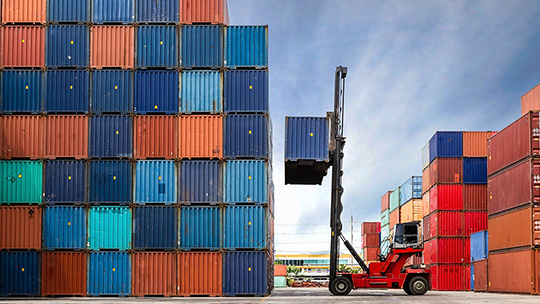China Allows Companies to Settle Trade in RMB
By Vivian Ni
Mar. 20 – China has just made another big step in the internationalization of its local currency, the renminbi (RMB) or yuan, recently. Under the new regulations released by the People’s Bank of China (PBC), trading entities all over the world can now settle trade in RMB subject to local restrictions.
According to the “Circular on Issues Concerning the Administration of Enterprises Settling Goods Export in RMB (yinfa [2012] No.23)” co-issued by the PBC, Ministry of Finance, Ministry of Commerce, General Administration of Customs and Banking Regulatory Commission on February 3, all China-based enterprises with import and export qualifications are allowed to settle their goods exports in RMB.
The new circular lifted China’s previous restrictions which required domestic goods exporters to acquire PBC designation before conducting RMB settlements. Over 60,000 companies have obtained that permit, but the policy relaxation this time will significantly increase the number of companies that are eligible to use RMB. The new scheme will enable enterprises to use the currency to settle all cross-border trade of goods and services, as well as other transactions on their current accounts.
However, companies are not free of scrutiny under the expanded scheme. Those that flouted customs, trade and financial rules in the past two years will be put under special supervision and are not allowed to deposit their RMB incomes overseas.
Local governments will renew the list of enterprises under that special supervision every year.
In an effort to reduce its reliance on U.S. dollars and boost the global status of the RMB, China has taken several steps to expand the use of its currency overseas. In addition to supporting Hong Kong, Singapore and London to become offshore RMB centers, the government has also established currency swaps with more than 14 countries to increase offshore RMB liquidity.
China is also considering loosening its tight control over the RMB, a move that will likely give traders more confidence in using the currency. Through attempts to free its capital accounts and develop its financial markets, China aims to make the RMB basically convertible by 2015.
The government measures taken so far have proved to be highly successful and have led to a surge in cross-border RMB settlements. Total trade settled in RMB jumped four-fold at the end of 2011 from a year earlier and reached RMB2.1 trillion, accounting for 9 percent of China’s total imports and exports in 2011.
International businesses – especially those operating in regions with a non-U.S. dollar local currency – are showing an increasing interest in RMB settlements when trading directly with China. Invoicing and paying in RMB greatly reduce their exposure to the risks of exchange rate turbulence, and simpler transferring procedures offer them more freedom to choose the currency that creates the most beneficial settlement.
More and more multinational corporations are also seeing RMB deposits and RMB capital raising as a means to diversify their capital portfolio. A number of big-name foreign companies flocked to Hong Kong last year to issue the RMB-denominated “dimsum bonds,” revealing a greater demand for holding RMB under expectations of the currency’s further appreciation.
Companies overseas that wish to conduct cross-border RMB transactions can open offshore RMB accounts at qualified banks. Starting in October 2010, China also allowed overseas companies to open non-resident RMB accounts at onshore banks, but require companies to prove such accounts are only opened for RMB cross-border settlement purposes and submit related documentation for the PBC’s approval.
Related Reading
China Takes Further Steps Towards Internationalizing the Renminbi
China Officially Opens Cross-Border RMB-Denominated FDI
China Supports London’s Development as Offshore RMB Market
Africa Welcomes China’s RMB Internationalization
China to Expand Cross Border RMB Use
- Previous Article Writing Your Scope of Business in China
- Next Article U.S. Imposes Tariffs on Solar Panels from China


























